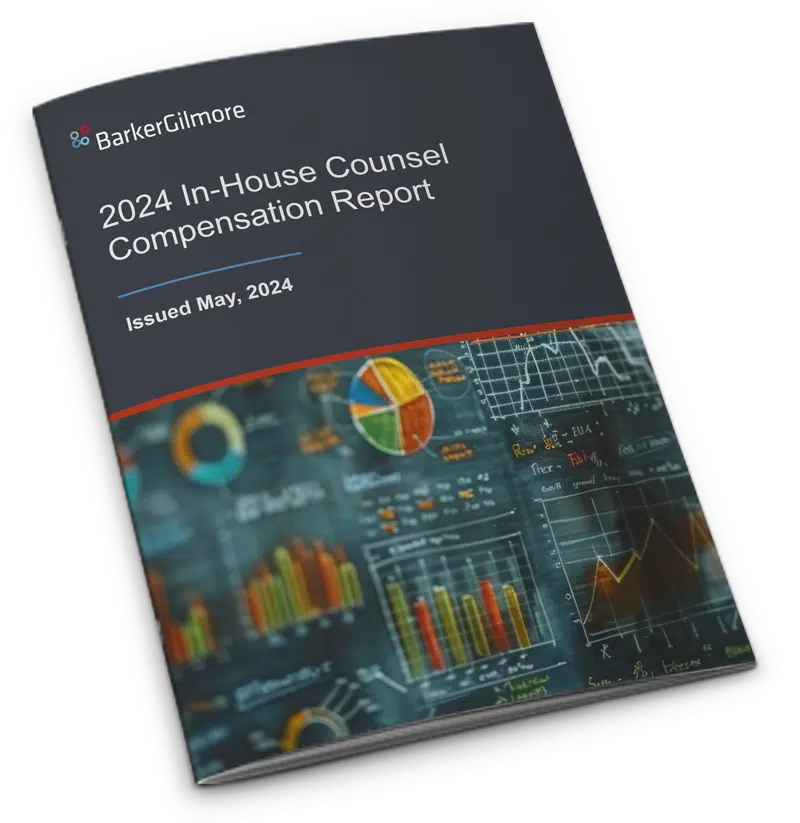Strategic Advisors Haydee Olinger and Marla Persky identify the hot topics on today’s board agendas and how GCs and CCOs should respond to provide board members with the information they need to enhance the execution of their fiduciary duties.
Below are highlights from the webinar. To learn more, the video recording, slide presentation, and podcast are available on this page.
Haydee Olinger, formerly serving as Global Chief Compliance Officer of McDonald’s, and Marla Persky, formerly serving as General Counsel and Corporate Secretary of Boehringer Ingelheim, are currently active board members. Their combination of C-Suite experience and board service grants them unique perspectives. Haydee and Marla share some sage advice to understand what boards expect of them, while acknowledging the challenges that GCs and CCOs face in developing a meaningful and helpful relationship with the board, without stepping on the CEO’s toes.
Beyond COVID-19, provide board members with updates on the company.
While COVID-19 is certainly taking up a lot of discussion time in the boardroom right now, members are still in need of information and education on the company’s current and near future risks along with plans to mitigate the risks.
“New rules are being promulgated by local and state governments as a result of COVID-19, while other regulations previously passed by state and federal legislatures now coming into effect. The California Privacy Protection Act is one example. At the same time, enforcement actions haven’t subsided.”
— Haydee Olinger
As if this were not enough, the impact of the current social and political climates on business are also hot topics of discussion. Although it is necessary to focus on COVID-19, the board must still understand what impending issues the company is facing and certainly how the company is prepared to address them. Since crisis management and plans to deal with employment, privacy, and security issues are of particular importance during this pandemic, the GC and CCO need to keep board members apprised of the latest information.
Focus on critical legal issues so the board is not taken by surprise.
Board members expect that everyone in the C-Suite, and especially the CEO, GC, CCO, and CFO, will ensure that the board is kept up to date on issues that could be newsworthy. A board member does not want to read about the company in the media to learn about an issue for the very first time. Critical legal issues can include:
- Litigation with significant legal, operational, competitive, strategic, and/or financial implications for the company
- Commercial issues affecting competitive standing/advantage
- Critical IP issues
- Government investigations, subpoenas, etc.
- Issues that may affect company reputation
“What I expect from the GCs of the boards on which I now serve, and what I tried to achieve when I was in their position, is to not limit legal updates to board meetings. If something important is happening, communication must be timely; board members do not mind coming together for emergency meetings when the unexpected occurs.”
— Marla Persky
It’s also important for board members to understand the strategy behind the legal issues and the lessons learned as the issues achieve resolution. Even if a legal issue is not directly affecting the company, the board needs to know that the company is aware of the potential issue and is reviewing internal policies and practices to ensure that the company does not get caught in a situation similar to one that’s in the news.
Keep them aware of what’s on the legislative horizon.
Board members like to think ahead and anticipate potential changes. They need to know what legislative agendas will affect the industry, the company, and their customers, particularly in regard to access to capital and legal and regulatory changes that may necessitate alterations to the way the company does business. For example, when Dodd-Frank was passed, it initiated a sea of changes for the financial services industry. Since the industry knew things were happening, they were able to involve themselves in the lobbying efforts. That’s the type of situation about which board members expect the GC to keep them informed. More recent examples include the Affordable Care Act, changes to minimum wage law, and new or changing tariffs and treaties. Anything that’s happening out there that is a ripe topic for the board agenda.
Do what’s right for the company when you have a controlling CEO.
As a General Counsel, keep in mind that you work for the board and for the shareholders or owners. If the CEO is trying to control the information flow to the board, you have to feel comfortable pushing back on the CEO and trying not to surprise them. Bring them along and explain why it’s important for you to communicate to the board on a particular issue. When all else fails, you have to put your job on the line and do what is right.
Inform the board in advance of the company’s crisis management plan.
COVID-19 has showcased the importance of being prepared for a crisis and the GC is a crucial figure in terms of determining how well a business is prepared for the crisis. Legal may not be in charge of crisis management, but they should be well informed and ready to provide advice to management.
“I want to know our company’s crisis management plan as a board member before something happens. What are our plans during the crisis? What is our media strategy (which should include board communication)? How is the company prepared to weather any crisis and how are you anticipating the near future impact of a crisis and any legal issues associated with it?”
— Haydee Olinger
Once the crisis is over, board members want to know what the company learned from what happened and how the company would be better prepared to handle these issues in future.
Corporate social responsibility is of great importance to board members.
We’re dealing with many social and employment issues that are impacting relationships with vendors, customers, and investors. Board members want to be kept aware of any hot issues affecting the business environment, the company’s plans to deal with them, and the company’s expectations of the board. Boards currently need to be informed about:
- Diversity, equity, inclusion, and justice
- Employee impact
- Vendor impact – policy/practice of using diverse vendors (measurements & metrics)
- Customer impact – queries about company position/actions, vulnerability
- Investor impact – queries/reports from rating agencies, investor groups, etc.
- Community impact – local actions, advocacy, support, donations
- Corporate responsibility overall – plans, positions, etc.
“Over the past several years, there’s been a great push to put more women on boards, but now is the time to take a look at the racial and ethnic makeup of our boards as well. When you’re doing a board search, it really is a colorblind board search. This is a challenge. The board will rely particularly upon the General Counsel and the Corporate Secretary to help.”
— Marla Persky
Boards want to know about the overall efforts the company is taking, what corporate social responsibility plans are in place, and how the company is making a real impact that can translate to continued customer engagement.
GCs should play a central role in coordinating the company’s COVID-19 response.
COVID-19 is and will continue to be a major topic of discussion in the boardroom because there are so many issues surrounding it concerning employees, customers, suppliers, government rules, the physical plant, the office, and real estate implications. The GC can keep board members informed and update on the company’s plans in regard to:
- Preventing the spread of COVID-19, especially in organizations with constant customer interaction
- Operating and managing if employees need to be furloughed
- How quickly the company can recover once there’s a vaccine and employees are able to return to the office
- How long employees will be allowed to work from home
- If returning to the office is not practical, how does the company change its business model to make the environment safe
- New developments on COVID-19 that may impact the company
- Legal implications of providing goods and services
- Changing laws
The board’s oversight role certainly necessitates involvement in monitoring and assessing management’s actions regarding the day-to-day COVID-19 response. Members also want information on new developments related to COVID-19 that may impact the company, and to understand and work with management to structure the company’s mitigation plans and to address any economic impact. At the end of the day, the organization still needs to make money.
A final thought:
“While Marla and I are lawyers, the majority of board members are not, so they do need education. They want to fulfill their fiduciary duties by asking the right questions and challenging management. Many of them run their own companies and are already grappling with these topics in their own boardrooms. However, when they’re on the other side, they want to know that the GC and the CCO are keeping them informed about the events and issues the company is facing, especially in today’s tumultuous environment.
— Haydee Olinger
Learn even more from the Q&As presented during the webinar.
Attendees submitted questions to our distinguished Strategic Advisors and Coaches and their answers provide additional insights and a variety of useable and practical tips to help you provide greater value to your board members.
1. How can members of the board ensure that the board’s approach to diversity applies inclusion and equity prongs as well, in light of some companies that have one or two very strong directors (inside or independent) who control the board’s agenda and operations?
Marla: All board members have a voice. All have the right and ability to influence what is on the agenda for meetings. Board members also have the ability to state on which committees they wish to serve and most committee meetings are open to other board members who do not sit on those committees (of course, sometimes committee meetings are held at the same time). Certain board members (chair/lead director/committee chairs) do have “power and influence” but it is not a dictatorship. If a board member believes that the board needs to discuss inclusion and equity as part of diversity, then they should say so. Also, the board member can tell the CEO that they want to see that topic discussed at the next board meeting (I would also copy the chair/lead director) for, again, transparency. A “cowed” board member is not an effective board member.
Haydee: I agree with Marla. Board members need to speak up and challenge each other.
2. Should the CCO’s hiring and termination be a mandatory 8k filing? Shareholders depend on the culture/reputation/compliance of the company. Shouldn’t they know this?
Marla: I do not think a CCO or GC termination should require an 8K filing unless the terminated individual is a named executive officer. What is more important is that the board know of CCO and GC terminations before they occur so the board can “weigh in” in the event that the termination is questionable (retaliation, hush-up).
Haydee: As Marla states, per the SEC, 8K filings relate to executive officers. If a CCO is terminated for doing what is right, the board should be made aware of this. More, importantly, the GC should be supporting the CCO along the way so that it never gets to this point.
3. How can you convince board members or management to use external search services to identify board members? It seems like board candidates are constantly coming from relatively homogeneous personal networks.
Marla: I do not think that hiring a search firm should be required. If the board seeks to diversify and the members of the board/management do not have diverse networks themselves or need a unique board candidate that is hard to find, then going to an external search firm is critical. There is no guarantee that external search firms have diverse networks, themselves. As chair of the Nomination/Governance Committee of a publicly traded company, I would always start with the board and management and then go to other organizations that maintain listings/resumes of diverse candidates to see if we can identify a diverse slate. If not, then I would go to a search professional.
Haydee: I am the chair of our nominating committee as well. Once we have identified a specific skill we lack as a board, we turn to other board members for recommendations. I don’t feel we need to hire a search firm if we are able to identify candidates as a board. However, as chairperson, I insist that the slate of candidates they propose be diverse.
4. If a board member who is not an employee posted something on a personal social media account, would you agree with the board terminating that board member?
Marla: It depends on the posting, obviously. If the posting in any way compromises the company, then yes, I agree that the board member should be asked to resign.
Haydee: I agree with Marla’s response. If the posting is of the nature that it reflects poorly upon the company, they should be asked to resign.
Haydee Olinger, Marla Persky, and our team of professionals are happy to help accelerate the initiatives that you’re already pursuing or to supplement your current strategic thinking to help you realize your vision. Please reach out if you or your organization may benefit from our recruiting, coaching, or advising services.
Connect with a legal recruiting advisor
* indicates required fields






